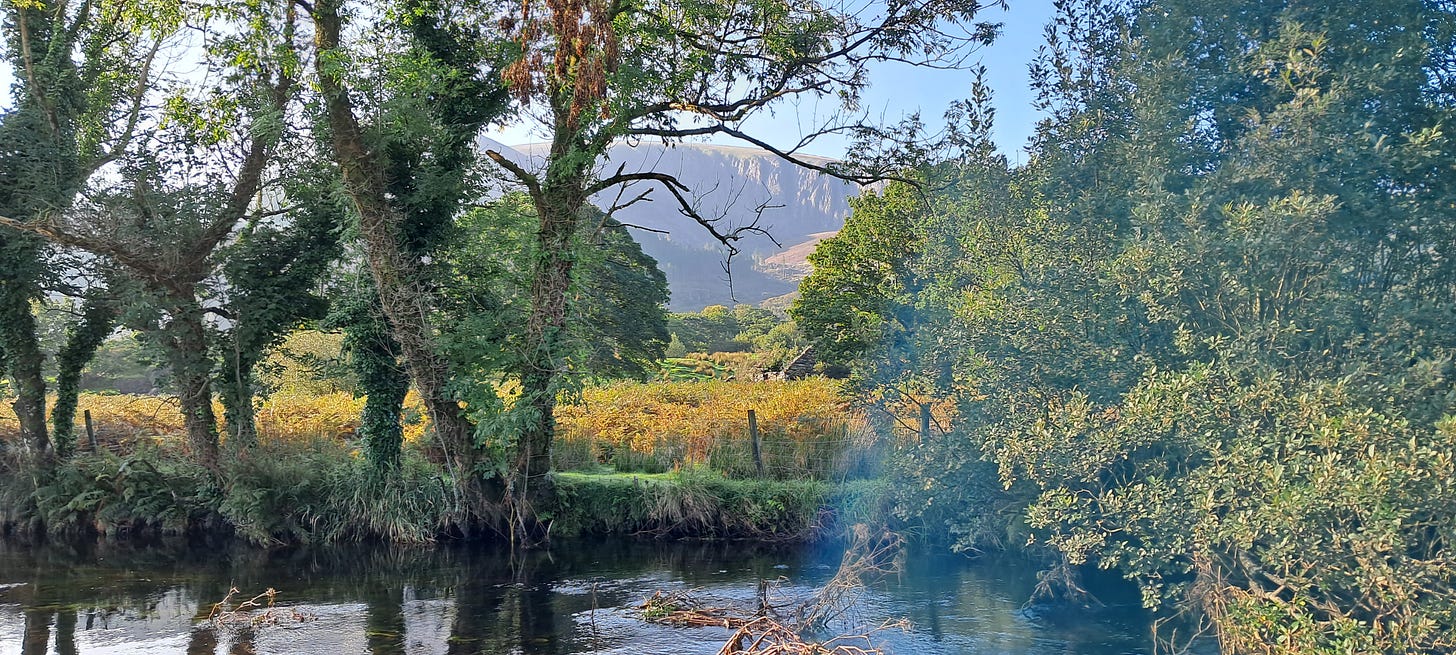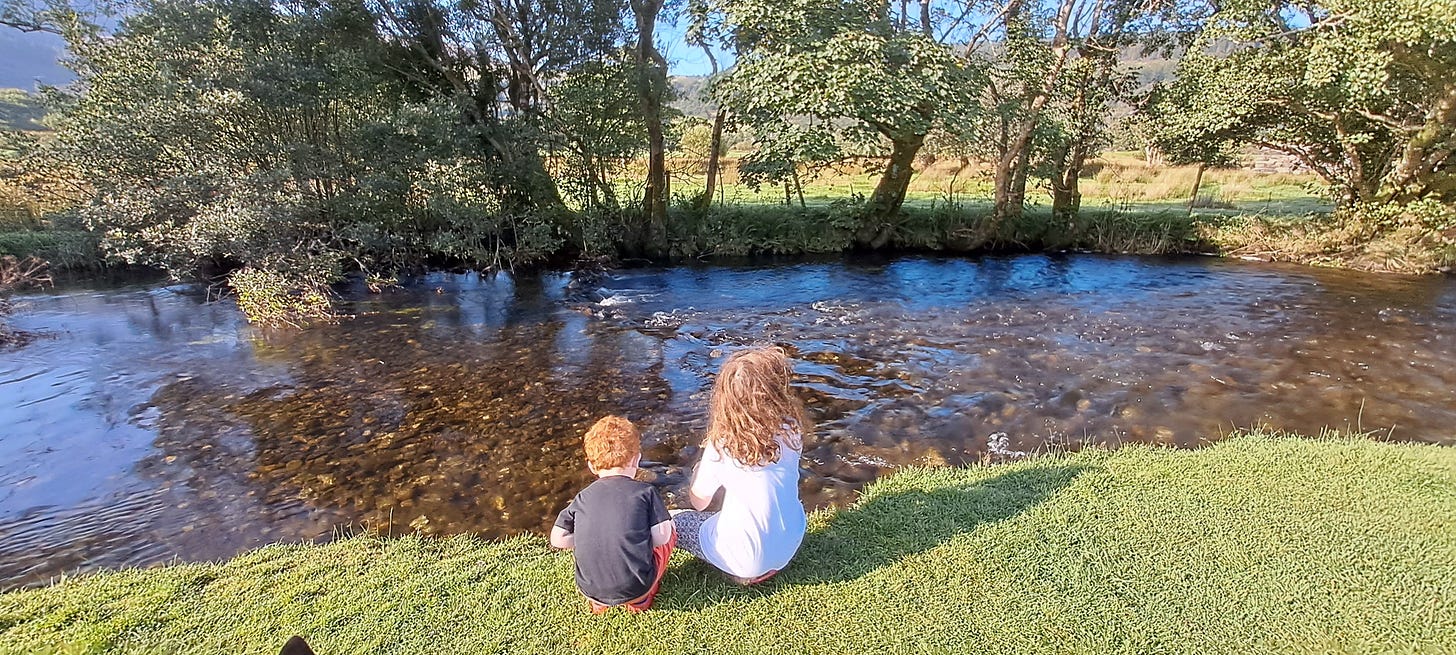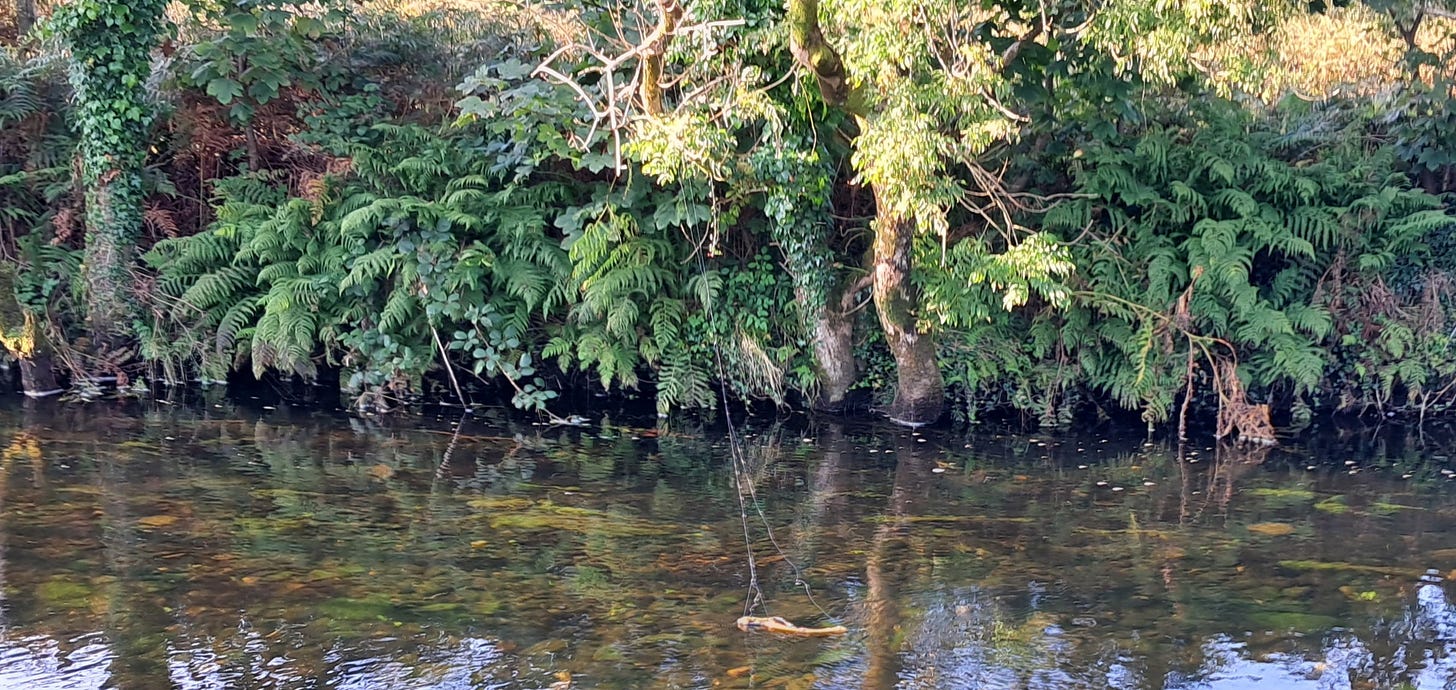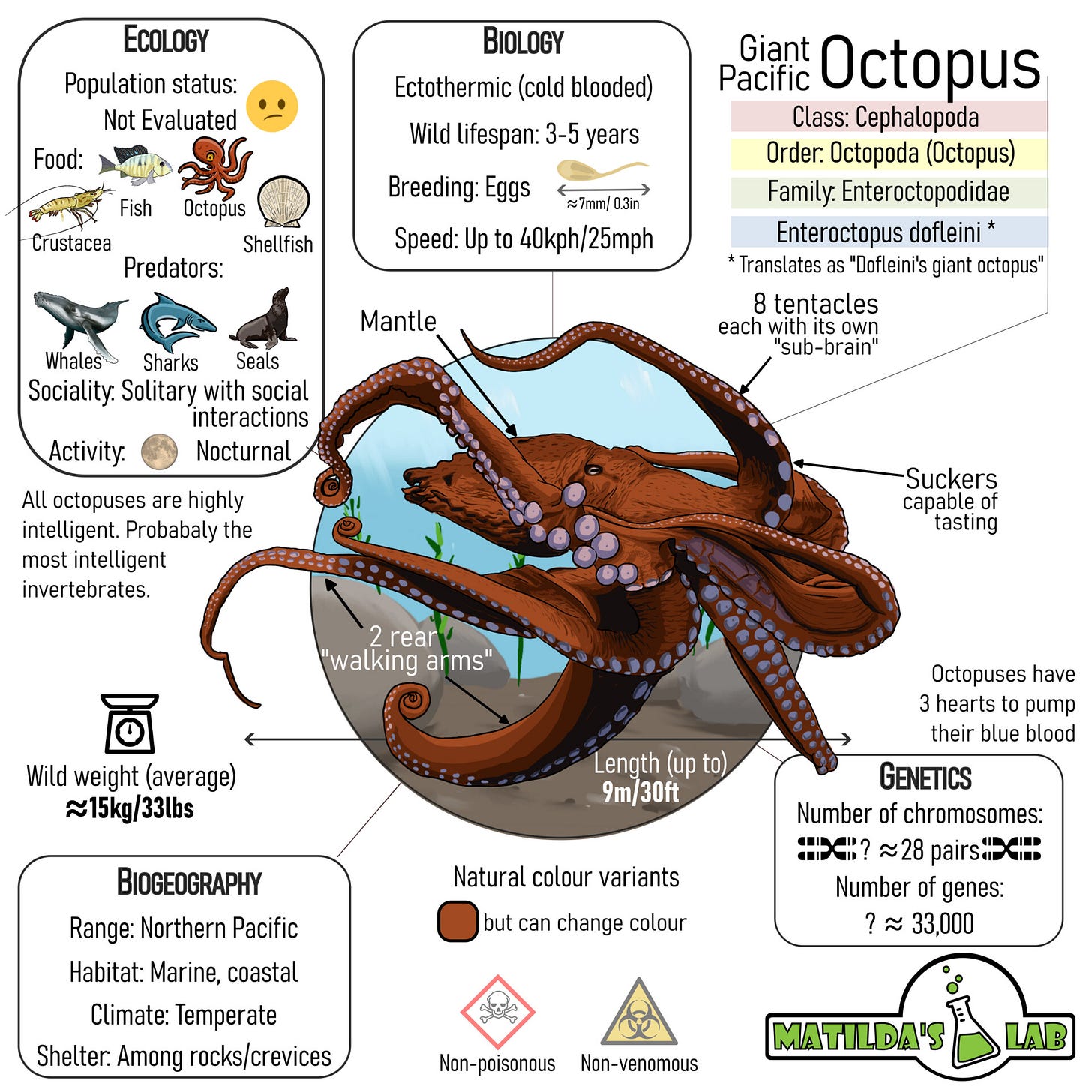Matilda's Lab Newsletter #23
This week, we explore a river, have more octopus than you can shake a tentacle at, find out why cats love tuna so much and discover how alarming close our ancestors came to extinction.
And just like that, the summer holidays are over.
What we’ve been up to
We’ve just had what is looking like the last caravan trip of the year, but it was a good one. Most of our trips seems to be costal, but this time we were staying within the hills of the Snowdonia national park, with Snowdon itself visible from our caravan. The site was in a gorgeous valley with a river running through it. Whilst we were blessed with sunshine, the only way that the weather let us down was that it clouded over every night so that we couldn’t see, what I’m certain would have been, an amazingly dark sky. It’s rare that I go somewhere dark enough to see the Milky Way, it’s just a shame that I didn’t get the chance to glympse it whilst we were there.
The river flowing through the campsite was teeming with water boatmen; the insects, not actual men in boats. Water boat men aren’t a single species (this is commonly the case with insects), there are over 50 genera of water boatment so there’ll be hundreds of species, all within the family Corixidae. They sit within the order Hemiptera which makes them “true bugs” along with things like Cicada, stink bugs and aphids.
Another remarkable piece of nature on the river was a piece of wood which was floating on the river but not moving. It was not moving because it was being held in place by a spiderweb! I can only assume that a piece of tree branch already attached to spiderweb fell from the tree and the attached spiderweb was stretchy enough to make it to the water intact, and then remained strong enough to stop the wood from being wahed downstream. Amazing!
New Blog content
No new content this week I’m afraid.
From the Archive
This week saw the start of #SciArtSeptember so I’ve been sharing content in line with the daily prompt words for the scheme:
Day 3: Favouite
Day 5: Strangling
Science News
New in science land this week:
It’s amazing what the sea can hide from us. In 2018 the largest gathering of octopus were found; 20,000 of them: and know we know why. Thermal springs on the sea floor help their eggs to hatch quicker.
It’s well known that cats love tuna, I love tuna too. But it’s now been discovered that cats taste tuna differently than humans do. It’s a much more intense experience for them whichis why they love it so much.
Black holes burp up their recent meals! Sounds gross and thankfully that’s something of a litereary flourish (not mine). But they do cast out radio signals from material that they took in a few years earlier. Not from within the black hole itself though, that would be really big news.
99.9% of all species that have ever existed are exinct. A new study shows that around 300,000 years ago, our ancestors nearly became extinct too.
Electrical noise stimulation in the brain as been show to boost maths learning. Where do I sign up?
Don’t you just hate it when laws of physics don’t play out as you expected? Not if you’re a physicist! A heavy oxygen isotope has been made and is unexpectedly falling apart.
Kicking back
Fun time…
If at first your efforts at petty crime do not succeed…carry on regardless
Do not eat or drink anything for 24 hours prior to boarding this flight
The protective powers of…Diet Coke?
What I wouldn’t give to have that much spare times on my hands
I love anything that can give perspective like this (although technically they are doing the multiverse)
Step aside funky chicken, there’s a new bird in town with moves
On the subject of moves, you either have them or you don’t…
That’s it for this week.
Please feel free to get in contact with any questions, suggestions or comments either via Substack or at matildaslab@gmail.com.
Please share this with anyone who you think will appreciate it. And remember to share with me any cool sciencey stuff that you find to make sure that I can pack this newsletter with best new science content each week.
Until next time, remember that one person’s old news is another’s revelation; so explore. Sometimes it’s not about being the first up the hill. The view’s still going to be breathtaking, no matter how many people have seen it before you.









